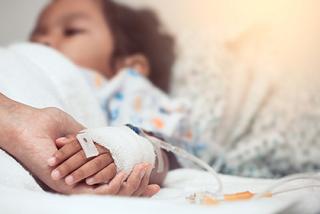
Author: Julie Kiefer
The National Institutes of Health (NIH) has designated University of Utah Health as one of a dozen medical centers in the national Undiagnosed Disease Network (UDN), dedicated to finding answers for patients with undiagnosed diseases. U of U Healthwill receive $3 million over four years to develop new technologies and clinical strategies for solving some of the most complex medical cases in the country.
“We’re here to help families with some of the most perplexing illnesses and at the same time advance discovery so that the benefits can be multiplied across the community,” says Lorenzo Botto, M.D., principal investigator and professor of Pediatrics at U of U Health. “We are committed to moving science toward a better understanding of disease and better treatments.”
Patients with diseases that defy categorization face a number of difficulties. It’s not unusual for them to be passed from doctor to doctor and subjected to numerous tests for years in attempts to treat and pinpoint the cause of their condition. A diagnosis opens an opportunity for more effective medical care and for patients to connect with supportive communities that are facing similar difficulties.
Since 2016, Botto has been leading a pilot program at U of U Health for children with undiagnosed diseases, called the Penelope program. A multidisciplinary team of clinicians and researchers thoroughly examines and assesses patients, searching their DNA for variants that lead to disease. Their efforts capitalize on expertise from ARUP Laboratories and the USTAR Center for Genetic Discovery at the U, renowned for developing innovative genomic analysis tools.
As part of UDN, the clinic will expand to serve adults and will have ready access to a national network of medical and scientific experts, as well as state-of-the-art technologies and facilities. The Utah site will serve patients throughout the Mountain West, a region encompassing 10 percent of the continental U.S. NIH funding will enable the clinic to admit approximately 15 patients each year.
“We believe that sooner or later our collaborative network will provide a light at the end of the tunnel for these families,” says Botto.
For more information about the UDN application process, visit https://undiagnosed.hms.harvard.edu/apply/
To learn about the UDN program, visit https://commonfund.nih.gov/Diseases.
